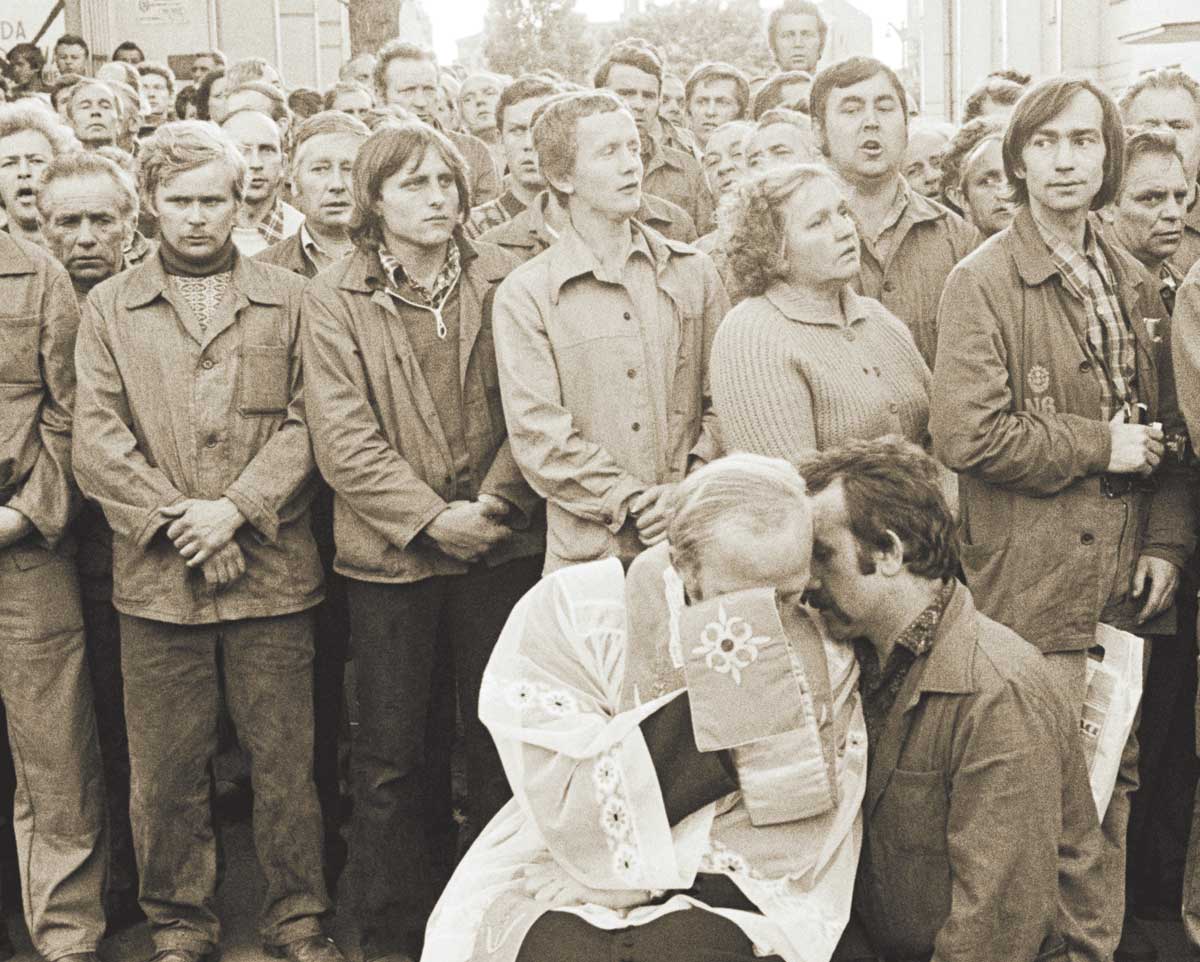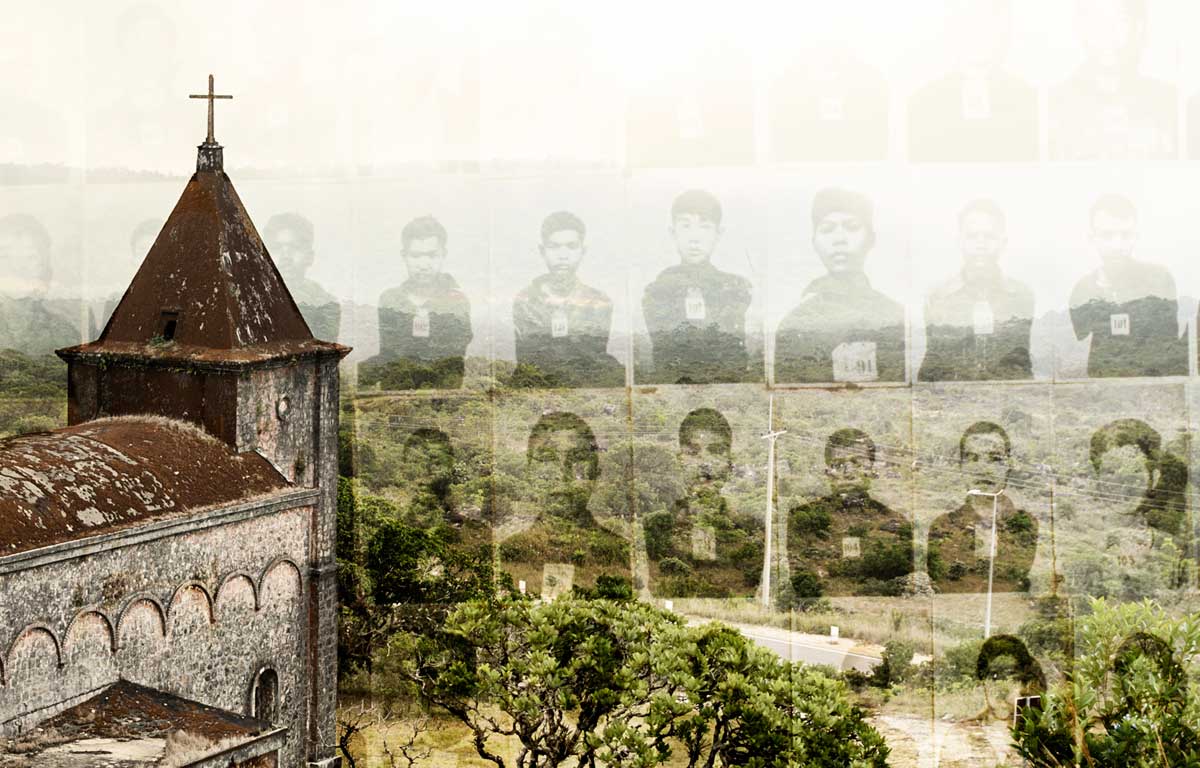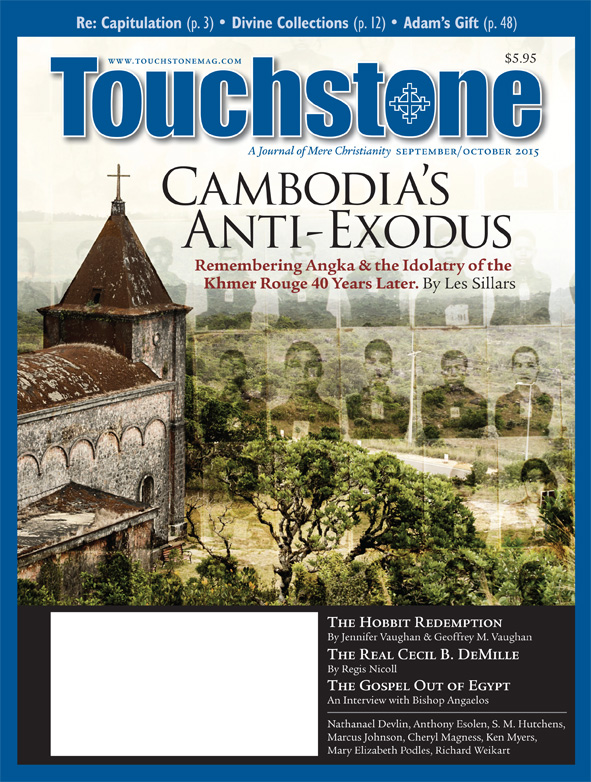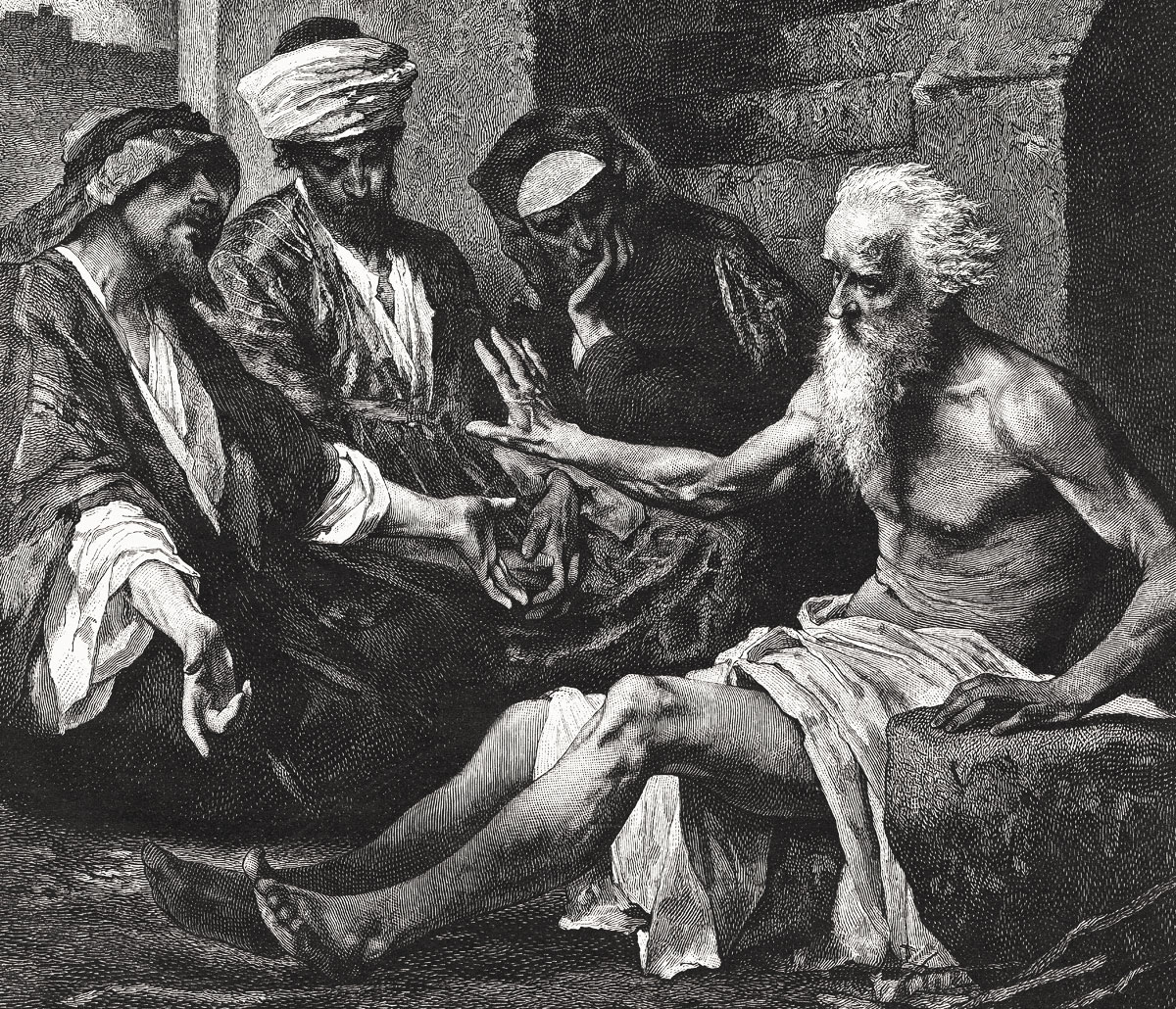Feature
Cambodia's Anti-Exodus
Remembering Angka & the Idolatry of the Khmer Rouge 40 Years Later
This year marks the fortieth anniversary of the rise of the Khmer Rouge in Cambodia. Led by Pol Pot, this Communist regime murdered about 1.7 million people between 1975 and 1979 in a doomed attempt to turn Cambodia into a Marxist agrarian utopia. Applying the principles of Mao with the speed and violence of Stalin, the Khmer Rouge executed hundreds of thousands of citizens by cutting throats and crushing skulls with hoe-handles. Most of the rest died of starvation, overwork, and disease.
No other regime in modern history has exterminated nearly a quarter of its own people, but it isn't just the violence that sets apart "Angka," the name of the revolutionary organization; no other government has ever attempted such totalitarian control over its citizens.
To do this, it turned socialism into a national religion, enforced with the legalism of the Pharisees and pretensions to the omniscience of Big Brother. Angka assumed control of family life and abolished all other institutions of Cambodian society, starting with Buddhism and all other religions. "Every citizen of Kampuchea (as the regime called Cambodia) has the right to worship according to any religion and the right not to worship according to any religion. Reactionary religions which are detrimental to Democratic Kampuchea and Kampuchean people are absolutely forbidden," declared the Khmer Rouge constitution in a gorgeous bit of Orwellian doublethink.
Angka also put an end to schools, private property, free markets, business, legitimate government, voluntary associations, private transportation, and anything that felt foreign. All that remained was the collective, embodied in Angka.
What's striking is how so much Khmer Rouge ideology resembled key elements of Christianity turned inside out and upside down. This was not deliberate, for the Khmer Rouge knew little of the Bible; Pol Pot insisted that everything about the revolution was Khmer in origin. Yet everywhere in Cambodia there were echoes of biblical truths that had been hideously distorted in the effort to create the "new socialist man." It's as if some alien intelligence, intending to create the most un-Christian society possible, distilled sixty years of applied totalitarianism from around the world into one ghastly system and then unleashed it on a small, unsuspecting country. Radha Manickam, a Christian, was one of the survivors.

Angka's Supremacy
I am the Lord your God. Manickam was 22 when the Khmer Rouge rolled into Phnom Penh and the other Cambodian cities on April 17, 1975. It was the end of a vicious five-year civil war against the U.S.-backed Khmer Republic. In the name of Angka, the Communists began herding, on foot, every single city-dweller, some two million people, into the countryside at gunpoint. These city folk were the "New People," those who had become rich by oppressing virtuous country folk, the "Old People," who had supported the Khmer Rouge during the civil war.
New People who resisted were simply shot, and thousands more died of dehydration and dysentery in the 100-degree heat as they trudged down the major boulevards. The Khmer Rouge cut off communication with the outside world and turned the country into one big labor camp. They planned to grow and export enough rice to purchase modern machinery and weapons, turning Democratic Kampuchea into a model of pure socialism.
Manickam, a member of Cambodia's ethnic Indian minority, had become a Christian two years earlier at one of the many Phnom Penh Evangelical churches that sprang up during the civil war. After the evacuation, he and his family—parents, grandmother, and six younger siblings—found themselves living in a village of tarp-tents in a field south of Phnom Penh.
Les Sillars teaches journalism at Patrick Henry College and is on staff at WORLD magazine; his first book, Intended for Evil: A Survivor's Story of Love, Faith, and Courage in the Cambodian Killing Fields, was released by Baker in 2016.
subscription options
Order
Print/Online Subscription

Get six issues (one year) of Touchstone PLUS full online access including pdf downloads for only $39.95. That's only $3.34 per month!
Order
Online Only
Subscription

Get a one-year full-access subscription to the Touchstone online archives for only $19.95. That's only $1.66 per month!
bulk subscriptions
Order Touchstone subscriptions in bulk and save $10 per sub! Each subscription includes 6 issues of Touchstone plus full online access to touchstonemag.com—including archives, videos, and pdf downloads of recent issues for only $29.95 each! Great for churches or study groups.
Transactions will be processed on a secure server.
more on communism from the online archives

19.10—December 2006
Workers of Another World United
A Personal Commemoration of Poland’s Solidarity 25 Years Later by John Harmon McElroy
more from the online archives
calling all readers
Please Donate
"There are magazines worth reading but few worth saving . . . Touchstone is just such a magazine."
—Alice von Hildebrand
"Here we do not concede one square millimeter of territory to falsehood, folly, contemporary sentimentality, or fashion. We speak the truth, and let God be our judge. . . . Touchstone is the one committedly Christian conservative journal."
—Anthony Esolen, Touchstone senior editor










